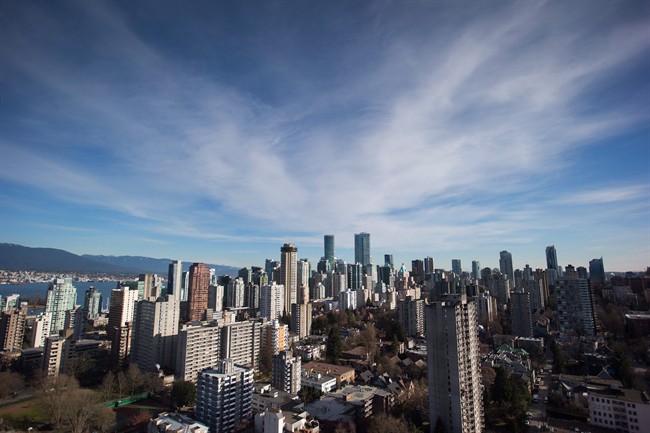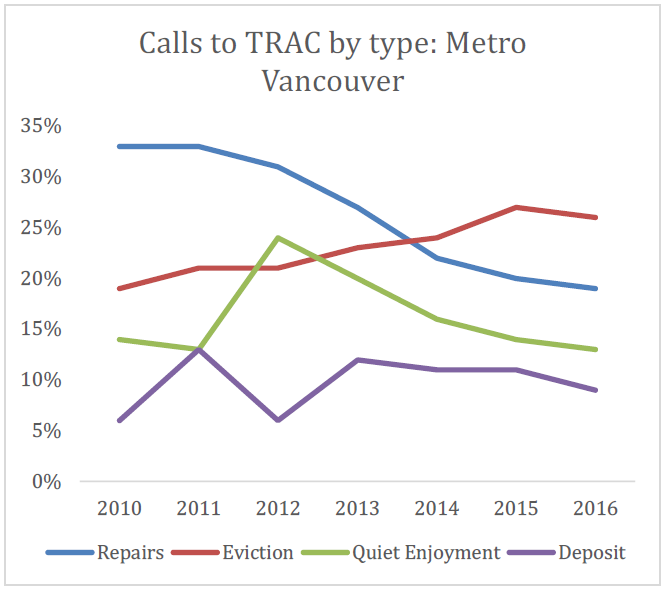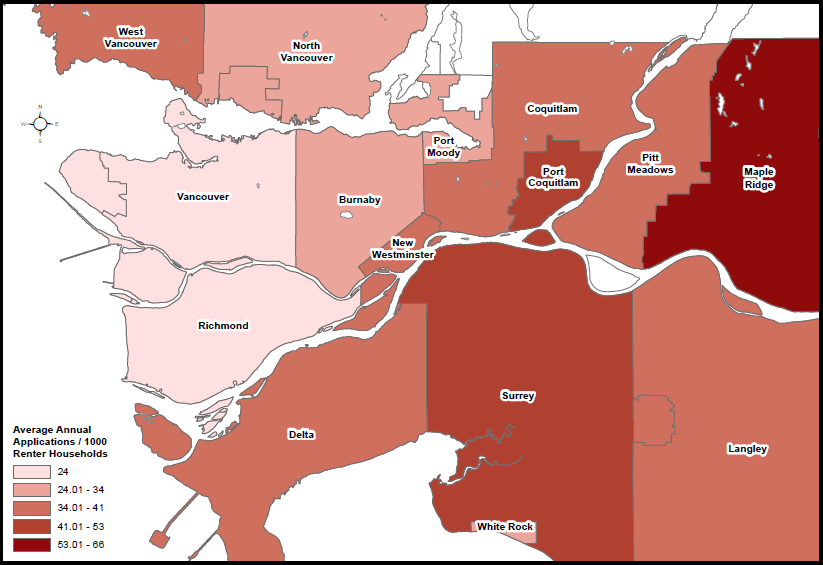Metro Vancouver landlords may be using the power of tenancy law to evict tenants a lot more often than renters use it to assert their rights, a study out of Simon Fraser University (SFU) has suggested.

The study looked at a subset of disputes that were brought to B.C.’s Residential Tenancy Branch (RTB) from 2006 to 2017 and found that landlords brought actions about 60 per cent of the time, even though there are more tenants overall.
Coverage of renting in Vancouver on Globalnews.ca:
The research was conducted by SFU geography Prof. Nicholas Blomley, who worked with Andy Yan, director of SFU’s City Program, and research analyst Natalia Perez.
They took RTB data covering end of tenancy notices, with disputes divided into three categories: landlord’s use of rental property; rent; and cause.
The data covered disputes that happened between Jan. 1, 2006 and April 30, 2017.
READ MORE: In Metro Vancouver, 43 per cent of renters are living in homes they can’t afford: Census
The study looked at 127,114 disputes in this period in Metro Vancouver.
Of those, 75,610 (59.5 per cent) were disputes that had tenants as respondents, while 51,504 (40.5 per cent) were initiated by tenants themselves.
Most disputes initiated by landlords originated in Surrey (66.5 per cent), followed by Langley (66.3 per cent) and Coquitlam (65.5 per cent).
On the other side, most tenant-initiated disputes were in the City of Vancouver (48.7 per cent), followed by West Vancouver (45.3 per cent) and North Vancouver (41.4 per cent).

The study also showed that most disputes, 38.8 per cent, had to do with unpaid rent.
That covered 48.9 per cent of all disputes in Surrey, compared to 44.4 per cent in New Westminster and 43.9 per cent in Maple Ridge.
READ MORE: Vancouver, where an ‘affordable’ 3-bedroom unit rents for $3,333, if you ask the city
The sheer number of landlord-initiated disputes compared to ones launched by tenants showed that the former are using the Residential Tenancy Act (RTA) to evict people on the grounds that they’re supposed to be able to do so, Blomley told Global News.
But those grounds are “rather flawed,” he said.
“I think there’s been a tendency in thinking about evictions to focus on dodgy dealing on the part of landlords, bending the rules, this sort of stuff,” Blomley said.
“I think they’re not bending the rules, they’re actually enforcing the rules, and maybe that’s a problem.”
Blomley took issues with numerous rules that apply to tenants in B.C.
One of them is that landlords have to wait one day after rent was due before they can hand a tenant an eviction notice. You then have five days to pay it in order to cancel the eviction.
If you don’t pay the rent, then you ahve to move out at the end of the 10 days from when your landlord handed you a notice.
“When you compare that to other contractual relationships, someone who hasn’t paid their mortgage, for example, or somebody in an employment relationship, when you haven’t quite met the terms of the contract, there’s a great deal more leniency that applies to the person holding the mortgage or the person, the employee,” Blomley said.
READ MORE: Vancouver approved a condo project, in part, because it had rentals. They cost $5,400/month
He referred to French law, in which it’s illegal to evict people in wintertime.
“I have the sense that there are lots and lots of tenants who are simply abiding by the rules… but those rules are overly restrictive for tenants,” he said.
Maple Ridge
The research didn’t just compare landlord-initiated disputes against those advanced by renters.
It also looked at applications to the RTB per 1,000 renter households, by municipality.
By this measure, Maple Ridge had the highest annual average applications, with 66, followed by Surrey with 53 and Port Coquitlam with 49.
“The research is suggesting in general that poverty is not just a downtown issue, it’s a suburban issue,” Blomley said.
He called Maple Ridge a “significant anomaly” compared to the Metro Vancouver average, which was 32 applications per 1,000 renter households.
The cities of Vancouver and Richmond were tied for the lowest on the list, at 24 each.
Like in other municipalities, most of the disputes in Maple Ridge were related to unpaid rent.
READ MORE: What $1,500 per month in rent gets you across Canada
Blomley wasn’t entirely sure why the number of disputes per 1,000 renter households was so high in Maple Ridge compared to other municipalities, but he said it “must be related presumably to something of the character of the renter population, particularly perhaps more vulnerable sectors of the rental population.”
And it could also have something to do with the kind of rental housing that they’re accessing, he added.
He also said it’s possible that the “landlords themselves are actually vulnerable” in places like Maple Ridge.
“They’re maxed out on their mortgage, the only place they could find was out in the suburbs, and they’re struggling to make the mortgage,” Blomley said.
The study’s data didn’t just come from the RTB.
Researchers also used information from the Tenant Resource Advisory Centre (TRAC) showing that calls to them increasingly covered evictions, while calls regarding repairs had gone down from 2010 to 2016.

The study noted that “not all disputes between landlords and tenants are arbitrated at the RTB,” and that some renters don’t file for dispute resolution “due to a fear of landlord reprisals, or because of delays in the arbitration process.”
Nevertheless, the cases referenced in the study could represent the “tip of the iceberg,” Blomley said.










Comments